Search Definitions
Browse Content

Definition
1st Rhode Island Regiment
The 1st Rhode Island Regiment, also known as Varnum's Regiment or the Black Regiment, was a regiment of the Continental Army during the American Revolutionary War (1775-1783). It was notable for being the first American military unit to consist...
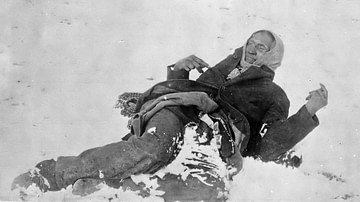
Definition
Wounded Knee Massacre
The Wounded Knee Massacre of 29 December 1890 was the slaughter of over 250 Native Americans, mostly of the Miniconjou people of the Lakota Sioux nation, by the US military at Wounded Knee Creek, South Dakota. Although the US government defined...
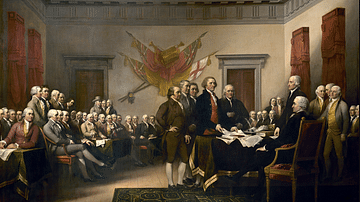
Definition
Social Contract
The social contract is an idea in philosophy that at some real or hypothetical point in the past, humans left the state of nature to join together and form societies by mutually agreeing which rights they would enjoy and how they would be...
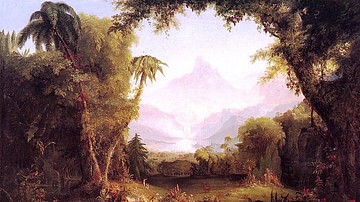
Definition
State of Nature
The state of nature is an idea which became especially popular with certain philosophers during the Enlightenment, notably Thomas Hobbes (1588-1679), John Locke (1632-1704), and Jean-Jacques Rousseau (1712-1778). It refers to a state of existence...
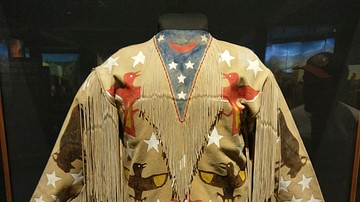
Definition
Ghost Dance
The Ghost Dance (Spirit Dance) is an expression of rebirth and renewal using the traditional Native American circle dance, first practiced by the Paiute Nation in 1869 and again in 1889 when it was adopted by other Plains Indians nations...
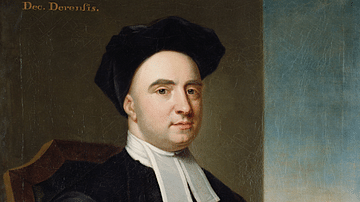
Definition
George Berkeley
George Berkeley (1685-1753) was an Anglo-Irish bishop and an empiricist and idealist philosopher. He infamously claimed that no matter exists outside of God and that things only exist outside of our minds and perceptions because God perceives...
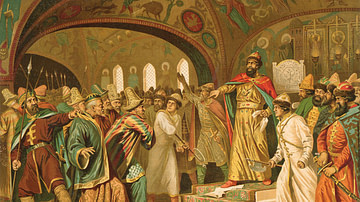
Definition
Ivan III of Russia
Ivan III of Russia (Ivan the Great) was the Grand Prince of Moscow and Russia from 1462 to 1505. Ivan III was born in 1440 to Grand Prince Vasily II of Moscow (r. 1425-1462) and his wife, Maria Borovsk (l. c. 1420-1485). He served as co-ruler...
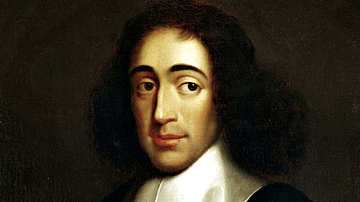
Definition
Baruch Spinoza
Baruch Spinoza (1632-1677) was a Dutch philosopher who combined rationalism and metaphysics to create a unique system of thought. Spinoza was held up as an atheist philosopher in the 18th century, but this is not an entirely accurate representation...
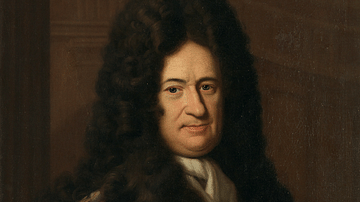
Definition
Gottfried Wilhelm Leibniz
Gottfried Wilhelm Leibniz (1646-1716) was a German polymath who became well-known across Europe for his work, particularly in the fields of science, mathematics, and philosophy. Leibniz's rationalist philosophy attempted to reconcile traditional...
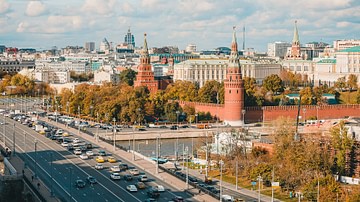
Definition
Kremlin
The Kremlin is a fortified complex located in the centre of Moscow, Russia, which is made up of towers, high walls, palaces, and cathedrals. Construction of the Kremlin began as early as the 12th century. As one of Russia's most famous landmarks...